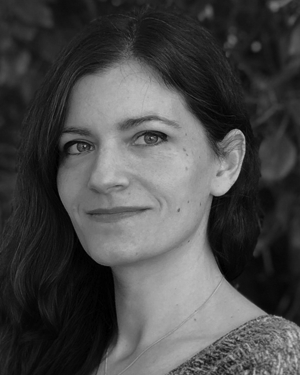Abstract:
Computational thinking (CT) can be considered a 21st century core skill and, accordingly, it should be taught to students at an early age. Nevertheless, the implementatio...Show MoreMetadata
Abstract:
Computational thinking (CT) can be considered a 21st century core skill and, accordingly, it should be taught to students at an early age. Nevertheless, the implementation of CT in school curricula is still in an experimental stage, given that different performance metrics remain unclear, including the appropriate age for learning each skill, the significant and achievable computational concepts for each school year, teaching strategies, learning effectiveness, and strategies for assessing development. Based upon constructivist problem-solving learning strategies and supported by a three-dimensional framework, a game-based environment with both individual and collaborative playing modes has been developed as a learning and an assessment tool via learning analytics. Moreover, an exploratory case study has been carried out involving 176 primary school students. Results suggest that this environment is suitable as a learning and assessment tool for CT skills in primary school, providing enduring learning, particularly when it engages the collaborative playing mode. It seems to be better adapted to early primary school stage students, who showed greater improvements and who were able to assimilate more computational concepts than expected. Likewise, special needs or low percentile students benefit even more greatly from the learning tool and especially from the collaborative playing mode. The combination of different assessment methodologies—including CT pre- and posttests, data-driven analytics, direct observation, and questionnaires—provides assessment for each of the framework computational dimensions.
Published in: IEEE Transactions on Learning Technologies ( Volume: 14, Issue: 5, 01 October 2021)
Funding Agency:

Computer Science Department, Universidad Rey Juan Carlos, Móstoles, Spain
María Zapata-Cáceres received the B.Sc. and M.Eng. degrees in architecture from the Polytechnic University of Madrid, Madrid, Spain, in 2002, the M.Sc. degree in virtual environments from Centro Superior de Arquitectura, Madrid, in 2005, the M.Sc. degree in videogame design and production from the European University of Madrid, Madrid, in 2005, and the B.Sc. degree in computer science from the National Distance Education ...Show More
María Zapata-Cáceres received the B.Sc. and M.Eng. degrees in architecture from the Polytechnic University of Madrid, Madrid, Spain, in 2002, the M.Sc. degree in virtual environments from Centro Superior de Arquitectura, Madrid, in 2005, the M.Sc. degree in videogame design and production from the European University of Madrid, Madrid, in 2005, and the B.Sc. degree in computer science from the National Distance Education ...View more

Computer Science Department, Universidad Rey Juan Carlos, Móstoles, Spain
Estefanía Martín-Barroso received the B.Sc. and M.Eng. degrees in computer science from Rey Juan Carlos University (URJC), Madrid, Spain, in 2002 and 2004, respectively, and the Ph.D. degree in computer science and telecommunications from the Autonomous University of Madrid (UAM), Madrid, in 2008.
Her Doctoral thesis focused on mobile adaptive learning systems for collaborative contexts. From 2003 to 2008, she was an Assis...Show More
Estefanía Martín-Barroso received the B.Sc. and M.Eng. degrees in computer science from Rey Juan Carlos University (URJC), Madrid, Spain, in 2002 and 2004, respectively, and the Ph.D. degree in computer science and telecommunications from the Autonomous University of Madrid (UAM), Madrid, in 2008.
Her Doctoral thesis focused on mobile adaptive learning systems for collaborative contexts. From 2003 to 2008, she was an Assis...View more

Faculty of Education, Universidad Nacional de Educación a Distancia, Madrid, Spain
Marcos Román-González received the B.Sc. degree in educational psychology, the M.Sc. degree in educational research, and the Ph.D. degree in education from National Distance Education University (UNED), Madrid, Spain, in 2006, 2013, and 2016, respectively.
His Doctoral thesis focused on code literacy and computational thinking (CT) development in primary and secondary schools. From 2012 to 2019, he was an Assistant Profess...Show More
Marcos Román-González received the B.Sc. degree in educational psychology, the M.Sc. degree in educational research, and the Ph.D. degree in education from National Distance Education University (UNED), Madrid, Spain, in 2006, 2013, and 2016, respectively.
His Doctoral thesis focused on code literacy and computational thinking (CT) development in primary and secondary schools. From 2012 to 2019, he was an Assistant Profess...View more

Computer Science Department, Universidad Rey Juan Carlos, Móstoles, Spain
María Zapata-Cáceres received the B.Sc. and M.Eng. degrees in architecture from the Polytechnic University of Madrid, Madrid, Spain, in 2002, the M.Sc. degree in virtual environments from Centro Superior de Arquitectura, Madrid, in 2005, the M.Sc. degree in videogame design and production from the European University of Madrid, Madrid, in 2005, and the B.Sc. degree in computer science from the National Distance Education University, Madrid, in 2018. She is currently working toward the Ph.D. degree in computer science from Rey Juan Carlos University, Madrid.
She is also a Researcher and visiting Professor in the B.Sc. degree program in game design and development with Rey Juan Carlos University. She has more than 15 years of professional experience in 3-D design, videogames, and teaching. Her main research interest includes videogames as learning tools for computer science.
María Zapata-Cáceres received the B.Sc. and M.Eng. degrees in architecture from the Polytechnic University of Madrid, Madrid, Spain, in 2002, the M.Sc. degree in virtual environments from Centro Superior de Arquitectura, Madrid, in 2005, the M.Sc. degree in videogame design and production from the European University of Madrid, Madrid, in 2005, and the B.Sc. degree in computer science from the National Distance Education University, Madrid, in 2018. She is currently working toward the Ph.D. degree in computer science from Rey Juan Carlos University, Madrid.
She is also a Researcher and visiting Professor in the B.Sc. degree program in game design and development with Rey Juan Carlos University. She has more than 15 years of professional experience in 3-D design, videogames, and teaching. Her main research interest includes videogames as learning tools for computer science.View more

Computer Science Department, Universidad Rey Juan Carlos, Móstoles, Spain
Estefanía Martín-Barroso received the B.Sc. and M.Eng. degrees in computer science from Rey Juan Carlos University (URJC), Madrid, Spain, in 2002 and 2004, respectively, and the Ph.D. degree in computer science and telecommunications from the Autonomous University of Madrid (UAM), Madrid, in 2008.
Her Doctoral thesis focused on mobile adaptive learning systems for collaborative contexts. From 2003 to 2008, she was an Assistant Professor at UAM and URJC. Since 2008, she has been an Associate Professor with the Computer Science Department, URJC. She leads the Blue Thinking Project and the DEDOS Project, as well as the development of ClipIt, a video-based social network platform created as part of the EU project JuxtaLearn. She is a Co-Principal Investigator of the CS-Track project, focused on Citizen Science. She has authored or coauthored more than 50 articles and received awards for various projects of which she has been a part. Her research interests include learning systems, human-computer interaction, and disabilities.
Estefanía Martín-Barroso received the B.Sc. and M.Eng. degrees in computer science from Rey Juan Carlos University (URJC), Madrid, Spain, in 2002 and 2004, respectively, and the Ph.D. degree in computer science and telecommunications from the Autonomous University of Madrid (UAM), Madrid, in 2008.
Her Doctoral thesis focused on mobile adaptive learning systems for collaborative contexts. From 2003 to 2008, she was an Assistant Professor at UAM and URJC. Since 2008, she has been an Associate Professor with the Computer Science Department, URJC. She leads the Blue Thinking Project and the DEDOS Project, as well as the development of ClipIt, a video-based social network platform created as part of the EU project JuxtaLearn. She is a Co-Principal Investigator of the CS-Track project, focused on Citizen Science. She has authored or coauthored more than 50 articles and received awards for various projects of which she has been a part. Her research interests include learning systems, human-computer interaction, and disabilities.View more

Faculty of Education, Universidad Nacional de Educación a Distancia, Madrid, Spain
Marcos Román-González received the B.Sc. degree in educational psychology, the M.Sc. degree in educational research, and the Ph.D. degree in education from National Distance Education University (UNED), Madrid, Spain, in 2006, 2013, and 2016, respectively.
His Doctoral thesis focused on code literacy and computational thinking (CT) development in primary and secondary schools. From 2012 to 2019, he was an Assistant Professor with UNED, where he has been an Associate Professor since January 2020. He is the lead author of the CT Test, which is being used worldwide for CT assessment at the primary and secondary school levels. He has authored and coauthored in top journals, such as Computers and Education, Computers in Human Behavior, and IEEE Transactions on Emerging Topics in Computing.
Marcos Román-González received the B.Sc. degree in educational psychology, the M.Sc. degree in educational research, and the Ph.D. degree in education from National Distance Education University (UNED), Madrid, Spain, in 2006, 2013, and 2016, respectively.
His Doctoral thesis focused on code literacy and computational thinking (CT) development in primary and secondary schools. From 2012 to 2019, he was an Assistant Professor with UNED, where he has been an Associate Professor since January 2020. He is the lead author of the CT Test, which is being used worldwide for CT assessment at the primary and secondary school levels. He has authored and coauthored in top journals, such as Computers and Education, Computers in Human Behavior, and IEEE Transactions on Emerging Topics in Computing.View more


